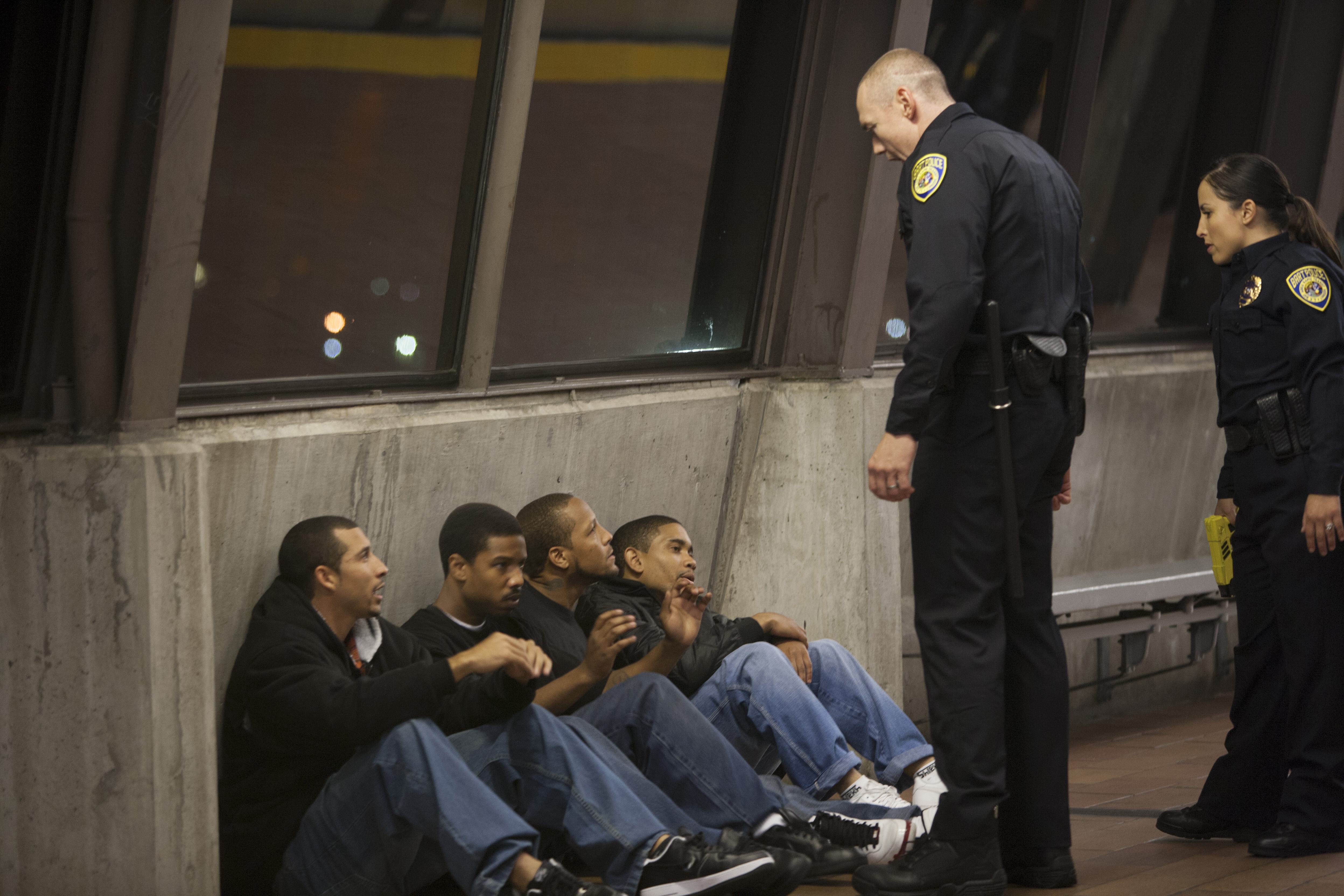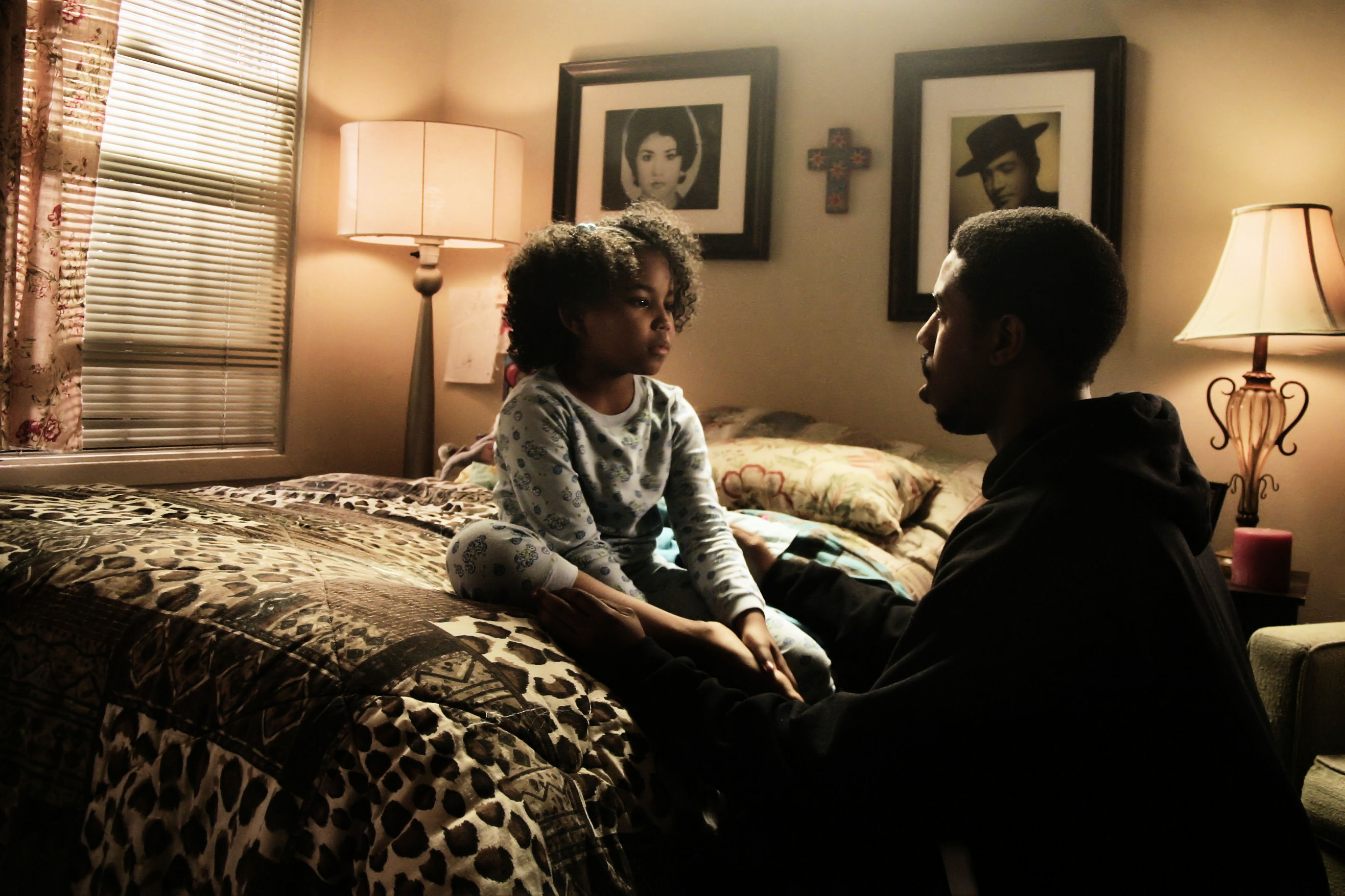This is a timely film. I was initially put off by the Weinstein Company’s decision to increase the film’s promotion due to its relevance with the George Zimmerman trial. It felt like exploitation to me, but after having seen the film I feel differently. Hopefully it will help raise some awareness and recognition about the state of race relations in our country. If you’re not familiar with the story, Fruitvale Station depicts the real life events leading up to the shooting and death of Oscar Grant at the hands of a California police officer. The film opens with the powerful and shocking video of the real life incident that was captured on a camera phone. For the remainder of the film, we follow Oscar around for his last tragic hours of life.

Fruitvale Station has been received very well by critics, and I expect that the theatregoers who have the opportunity to watch this film will embrace it as well. Michael B. Jordan portrays Oscar Grant with the right amount of anger, disillusionment, love, and worry with which a man in his position would be troubled. He carries the entire film on his shoulders, and he does it marvelously. Although being quickly introduced to the audience as a fallen man- he was unfaithful to his girlfriend (also his child’s mother), dealt drugs, had stints in jail, and recently lost his job- he is equally relatable and worthy of the sympathy he gains.
The shame he feels at his past actions and current situation are clearly evident on his brow. His hopes for a brighter future are dim but still glowing. The anger and frustration over the disparity of his desires and his reality are palpable. Others might fault the movie for glorifying its main character too much. The supporting cast and secondary story lines serve to undermine that. Both his girlfriend (Melonie Diaz) and his mother (Octavia Spencer) remind Oscar of his failures throughout the film. In a prison scene, Oscar’s mom makes it clear that she will not continue to visit him if he doesn’t straighten up. Sophina and his daughter might have to suffer the emotional consequences of his imprisonment, but she won’t accept it anymore.
Oscar may have strayed from the acceptable path of society, but he is clearly aiming to redeem himself. That makes his inevitable death all the more disheartening. There is a totally encompassing sense of doom that pervades this film. Even if you had not heard of the case, the opening scene alone assures the audience that they are not in for a pleasant experience. Scene after scene foreshadows the tragic fate that is to befall Oscar Grant. At one point, Oscar encounters a stray dog while getting gas. He pets the dog, but in the moment he takes to text his girlfriend, a reckless driver has run over the innocent dog. The driver never slows down.
All Oscar can do is move the dog from the middle of the road as he bleeds to death in his arms. However, the film does a great job of ensuring that its melodrama is spot on instead of cheap. It was no wonder that people reacted so strongly to it at my local screening. When that shot was fired, someone gasped sharply. The last fifteen or so minutes of the film were accompanied with sniffles and soft crying. When the epilogue read that the police officer was convicted guilty of involuntary manslaughter and served only 11 months out of his 2 year prison sentences, there were audible grunts of disapproval. The actual events took place on January 1, 2009. With the Zimmerman Verdict fresh on everyone’s minds, it feels as raw and powerful as if it had just happened.
Unfortunately, watching this film changes little. Most people, including myself, will come out feeling enraged, saddened, or both. The fact of the matter is that merely watching this film does little to vindicate the deaths of Oscar Grant and Trayvon Martin. They are still dead. George Zimmerman and Oakland police officer, Johannes Mehserle are free men. The frustration depicted in the film is shared by an entire American minority that finds itself disenfranchised whenever an event like this occurs. Hopefully, a movie like this can help us at least recognize that we are in need of serious changes.